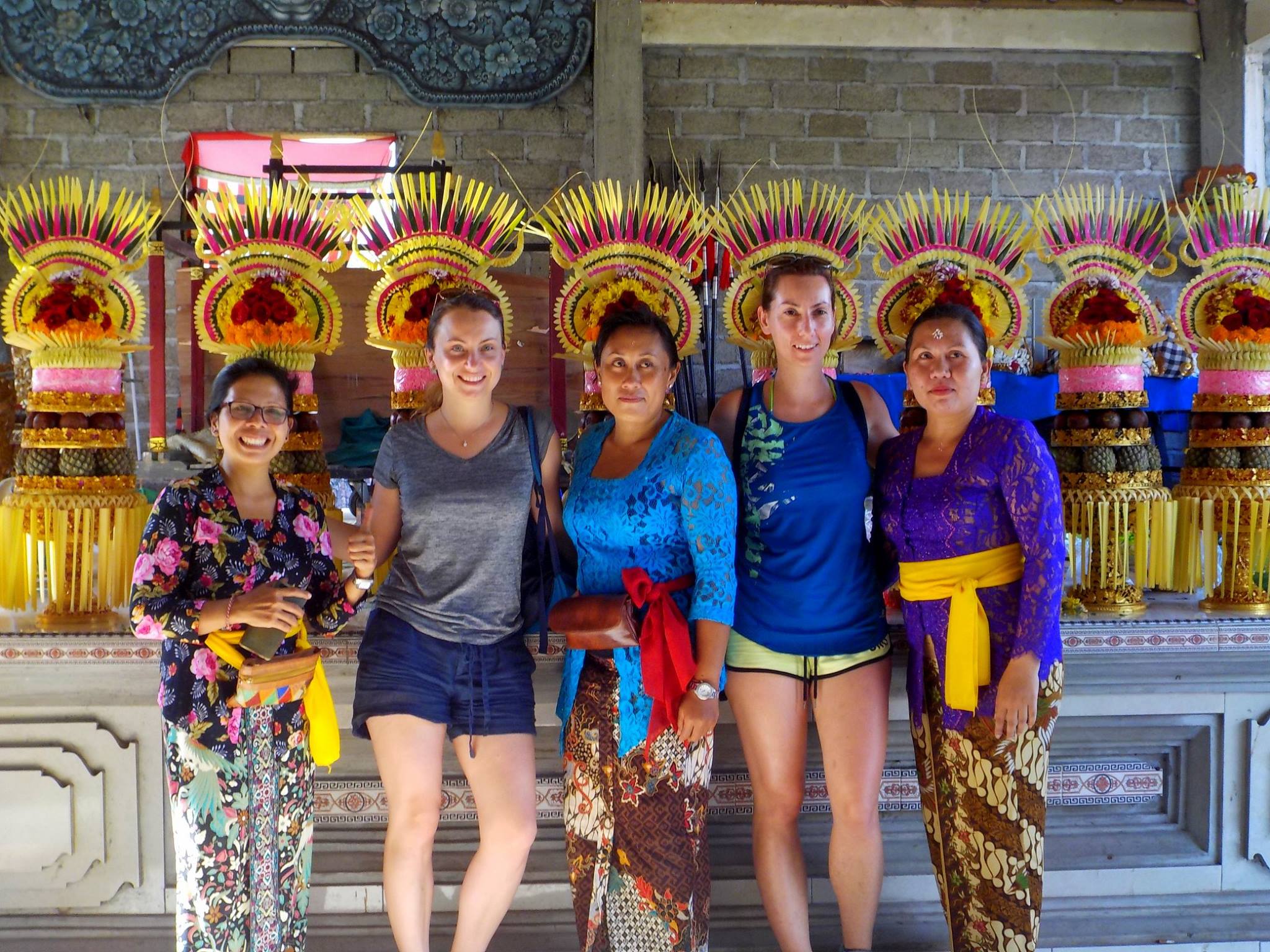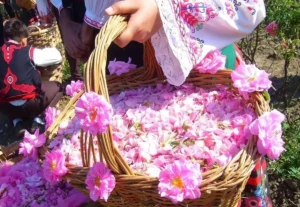Bali is not only known for its stunning beaches and vibrant culture, but also for its rich customs and spiritual traditions. The island’s unique blend of Hinduism, local beliefs, and cultural practices shapes its daily life, from the elaborate ceremonies to the simple yet profound rituals that take place across villages. In this article, we’ll take a closer look at the customs and religion in Bali, exploring the fascinating traditions that make this island a truly special destination. Whether you’re planning to visit or simply curious about the cultural fabric that defines Bali, this guide will give you valuable insights into its deeply rooted customs.
Local mindset
The people of Bali are known for their friendliness and warmth. Modest in their aspirations, they hold deep respect and a sense of duty towards their families. They don’t dream of emigrating or exploring new places; instead, they find contentment in what they have. Most have never left their hometowns, with only a few venturing to the capital, Jakarta. Their strong faith humbles them, and they approach others with ease and sincerity. Believing in the accumulation of both good and bad karma, they strive to be loyal to their loved ones and community to ensure their own prosperity and well-being.
Religion
The predominant religion in Bali is Hinduism, which permeates every aspect of daily life. Walking the streets, the scent of incense fills the air, a part of their daily religious rituals. Colorful offerings, carefully arranged by local women each morning, adorn the streets and homes, believed to be sacred and not to be stepped upon. Every morning, noon, and evening, locals gather at the village temple led by a spiritual leader who chants mantras. These ceremonies, predominantly attended by women as men are usually at work, involve offering woven baskets filled with fruits and delicacies to the gods. After the ceremony, the remaining food is shared with their families. Interestingly, alongside public temples, most households have their own, with wealthier families boasting grander ones.
Balinese Hindu culture follows two calendars, distinct from the familiar Gregorian calendar, to mark months and holidays. For instance, their New Year typically falls in mid-March. Families gather to celebrate, with the following day designated for rest and relaxation, during which work or activities are prohibited, even airports shut down for flights.
One of Hinduism’s fundamental principles is reincarnation, leading locals to believe in life after death. According to their beliefs, deceased relatives are reborn into the same family; it’s common to hear that a deceased grandmother has been reborn as a family’s child.
Traditions
Local customs surround death in Bali. After a loved one passes away, the body is cleansed and buried for about a year before the community prepares for a grand ritual. Multiple deceased individuals are often waited for to conduct the ritual, during which relatives and close ones gather for a lavish event to cremate the bodies. Regardless of the deceased’s relation, the entire village is involved in preparation, financial support, and participation in the ritual. After cremation, the ashes are placed in ornate animal-shaped urns and, along with the remains inside, burned, and the ashes are scattered into the sea or rivers. It’s believed that fire and water purify the soul, preparing it to merge with God and journey to higher realms.
Despite the significance of these ceremonies, those engaged in work often miss them. Nevertheless, they carry reminders of these rituals, like the scent of incense lingering in their cars or workplaces. This was evident in our driver, Rai, whose wife had prepared such offerings.
Tourism in the economy in Bali
A significant portion of Bali’s population works in tourism, as drivers or tour guides. Most tourists hire cars with drivers to explore local attractions. The cars are spacious, comfortable, and equipped with air conditioning. Traffic moves on the left side, which may require adjustment for those accustomed to right-hand driving in their home countries.


Locals are hardworking and conscientious, displaying immense gratitude for employment and treating customers with profound respect. They understand that satisfied customers are likely to return. While some work in government institutions, those in such positions enjoy more privileges compared to those in the private sector, particularly regarding access to pension and healthcare systems. Many working in tourism, for example, cannot afford free healthcare services, and a sick day is unpaid, with neither the state nor the employer covering it. They rely on support from their children in their old age, making the birth of a son a cause for celebration as he’ll likely care for them in their later years, while daughters typically marry into other families and do not carry this responsibility towards their parents.
Foreign investments
Foreign investments in Bali are abundant, driven by its proximity to Australia, attracting not only tourists but also individuals with financial means to invest in luxury villas and establishments. Many choose to settle permanently on the island, establishing businesses such as diving centers and travel agencies. People from countries like England, Sweden, Australia, New Zealand, among others, contribute to the economy with their investments and become employers to the local population. Alongside capital, these “white masters” enhance local businesses with their knowledge of quality Western service, indulging even the most discerning tourists. Local staff is employed at low wages to serve in these establishments.



Conclusion
In summary, Bali’s culture and spirituality shine through its traditions and community spirit. Despite the changes brought about by tourism and investments, the island has managed to retain a captivating blend of the old and new. While modern influences are evident, they have harmoniously integrated with the island’s rich heritage, allowing Bali to evolve without losing its cultural essence. Its beauty lies not just in its stunning landscapes—its lush rice terraces, pristine beaches, and towering temples—but also in the warmth and strength of its people. The Balinese way of life, deeply rooted in spirituality, respect for nature, and a sense of community, continues to inspire visitors from all over the world. Bali remains a place where tradition and innovation coexist, offering a unique experience that goes beyond sightseeing and immerses travelers in a culture that values balance, harmony, and respect.
Planning a trip to Bali?
Whether you’re unwinding on Bali’s serene beaches, exploring the vibrant streets of Ubud, or immersing yourself in the island’s cultural richness, finding the perfect place to stay is key to enhancing your experience. Check out here for great deals, or browse Booking.com for everything from cozy boutique stays to luxurious all-inclusives. For something more personal, this website is a fantastic way to stay with locals and experience the authentic vibe. For budget-friendly options, check here.






